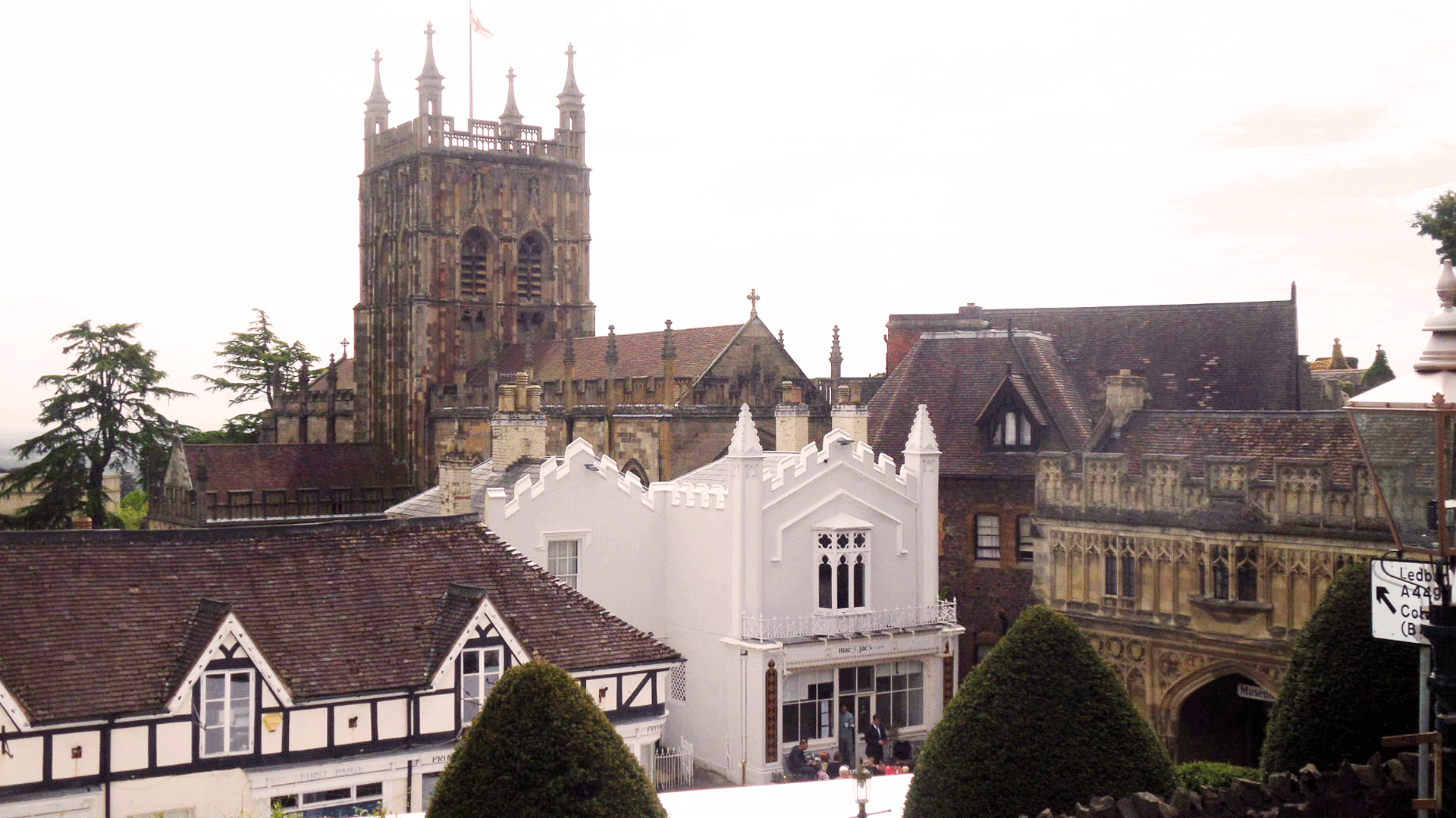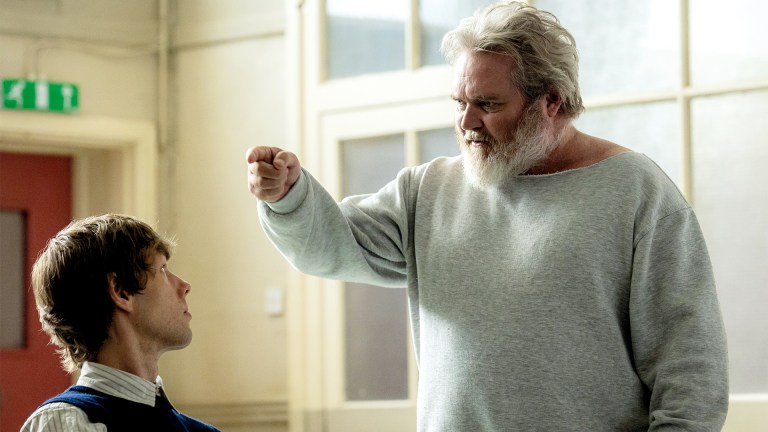Spare time on a sunny winter’s day is never wasted wandering around a graveyard. Though I am distant from many of Morrissey’s 21st century politics, I have not lost all his 20th century habits, although I hung around cemeteries before The Smiths had even formed. Today, I am struck by a high, solid and simple stone that remembers Gervas Howe who died in 1839 after a life of “integrity and liberal kindness”. In a turn of phrase I’ve never seen in a churchyard, he was “gathered up to his fathers like a shock of corn fully ripe”.
It’s a striking epitaph.
My 100 Bookshop Tour is amiably frantic. I am frequently rushing to make connections, but then sauntering through the town and to my next bookshop, occasionally swearing in a medieval cul-de-sac that appeared to be a thoroughfare. Great Malvern is almost like walking into a fiction. It looks like England designed for a 1940s Hollywood set, it seems almost impossible not to hear Elgar’s cello concerto when you look at the summit that peeks out at the top of the town. Though I have rarely visited it, it is alive in my imagination from the now legendary, once nearly forgotten, TV play Penda’s Fen. It is a play of adolescence, of a boy detaching himself from the conservatism of his culture, race and sexuality.
My lengthy obsession with Charles Darwin began here too. It was here his sickly daughter, Annie, came for hydrotherapy. She did not survive and died at 10 years old.
Darwin’s great-great-grandson, Randal Keynes, found a box containing mementoes of Annie and, from that, grew a book that dealt with Darwin’s science, fatherhood and how he and his wife Emma survived the loss of Annie. It is tragic, beautiful and enlightening.
It was not the science that first led me to Darwin, it was this very human story. I visit Annie’s grave at Great Malvern Priory – it simply says: “A Dear and Good Child”.









